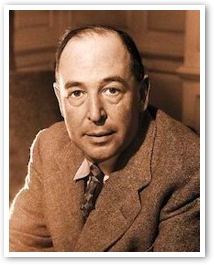 C. S. Lewis is one of my favorite authors. I marvel how God inspired a man with the sophisticated understanding to read much of medieval literature in its original languages and brought him to write simple children’s stories full of profound truth.
C. S. Lewis is one of my favorite authors. I marvel how God inspired a man with the sophisticated understanding to read much of medieval literature in its original languages and brought him to write simple children’s stories full of profound truth.
The following information was posted by Justin Taylor on his blog at the Gospel Coalition. I take no credit for it. I’m copying it here so that I have easy reference to remind myself of these bits of wisdom.
“Turn off the Radio.” [or in today’s world, iPhone, iPad, TV]
“Read all the good books you can, and avoid nearly all magazines.”
“Always write (and read) with the ear, not the eye. You should hear every sentence you write as if it was being read aloud or spoken. If it does not sound nice, try again.”
“Write about what really interests you, whether it is real things or imaginary things, and nothing else. (Notice this means that if you are interested only in writing you will never be a writer, because you will have nothing to write about . . .)”
“Take great pains to be clear. Remember that though you start by knowing what you mean, the reader doesn’t, and a single ill-chosen word may lead him to a total misunderstanding. In a story it is terribly easy just to forget that you have not told the reader something that he needs to know—the whole picture is so clear in your own mind that you forget that it isn’t the same in his.”
“When you give up a bit of work don’t (unless it is hopelessly bad) throw it away. Put it in a drawer. It may come in useful later. Much of my best work, or what I think my best, is the re-writing of things begun and abandoned years earlier.”
“Don’t use a typewriter. The noise will destroy your sense of rhythm, which still needs years of training.” (For more on this, go here.)
“Be sure you know the meaning (or meanings) of every word you use.”
“The way for a person to develop a style is to know exactly what he wants to say, and to be sure he is saying exactly that. The reader, we must remember, does not start by knowing what we mean. If our words are ambiguous, our meaning will escape him. I sometimes think that writing is like driving sheep down a road. If there is any gate open to the left or the right the reader will most certainly go into it.”
“Always try to use the language so as to make quite clear what you mean and make sure your sentence couldn’t mean anything else.”
“Always prefer the plain direct word to the long, vague one. Don’t implement promises, but keep them.”
“Never use abstract nouns when concrete ones will do. If you mean ‘More people died’ don’t say ‘Mortality rose.’”
“Don’t use adjectives which merely tell us how you want us to feel about the things you are describing. I mean, instead of telling us the thing is ‘terrible’ describe it so that we’ll be terrified. Don’t say it was ‘delightful’; make us say ‘delightful’ when we’ve read the description. You see, all those words (horrifying, wonderful, hideous, exquisite) are only like saying to your readers ‘Please, will you do my job for me.’”
“Don’t use words too big for the subject. Don’t say ‘infinitely’ when you mean ‘very’; otherwise you’ll have no word left when you want to talk about something really infinite.”
“We must not of course write anything that will flatter lust, pride or ambition. But we needn’t all write patently moral or theological work. Indeed, work whose Christianity is latent may do quite as much good and may reach some whom the more obvious religious work would scare away. The first business of a story is to be a good story. When Our Lord made a wheel in the carpenter shop, depend upon it: It was first and foremost a good wheel. Don’t try to ‘bring in’ specifically Christian bits: if God wants you to serve him in that way (He may not: there are different vocations) you will find it coming in of its own accord. If not, well—a good story which will give innocent pleasure is a good thing, just like cooking a good nourishing meal. . . . Any honest workmanship (whether making stories, shoes, or rabbit hutches) can be done to the glory of God.”
Sources:
- 1-8: C. S. Lewis letter to a girl named Thomasine (December 14, 1959), a seventh-grader whose teacher had assigned her students to write to a famous author for writing advice.
- 9: From C. S. Lewis’s final interview (May 7, 1963), six months before he died. He was responding to a question by Sherwood Wirt (1911-2001), who asked, “How would you suggest a young Christian writer go about developing a style?”
- 10-14: C. S. Lewis letter to Joan Lancaster (June 26, 1956), a young American girl who had written to him for advice on writing.
- N15: C. S. Lewis letter to Cynthia Donnelly (August 14, 1954).
0 Comments